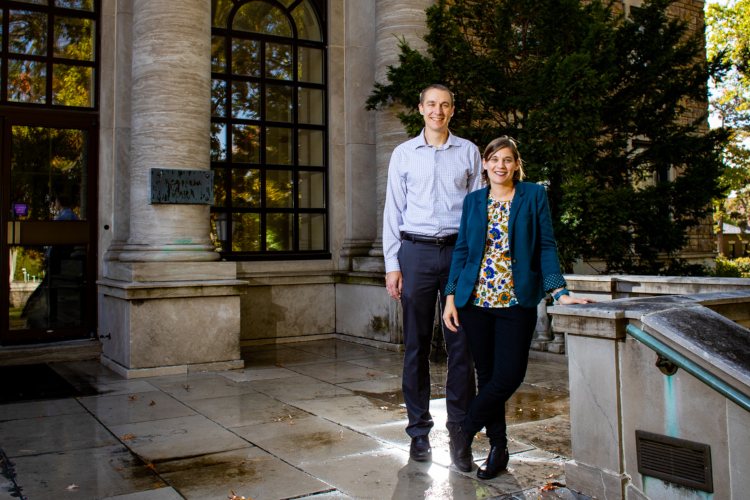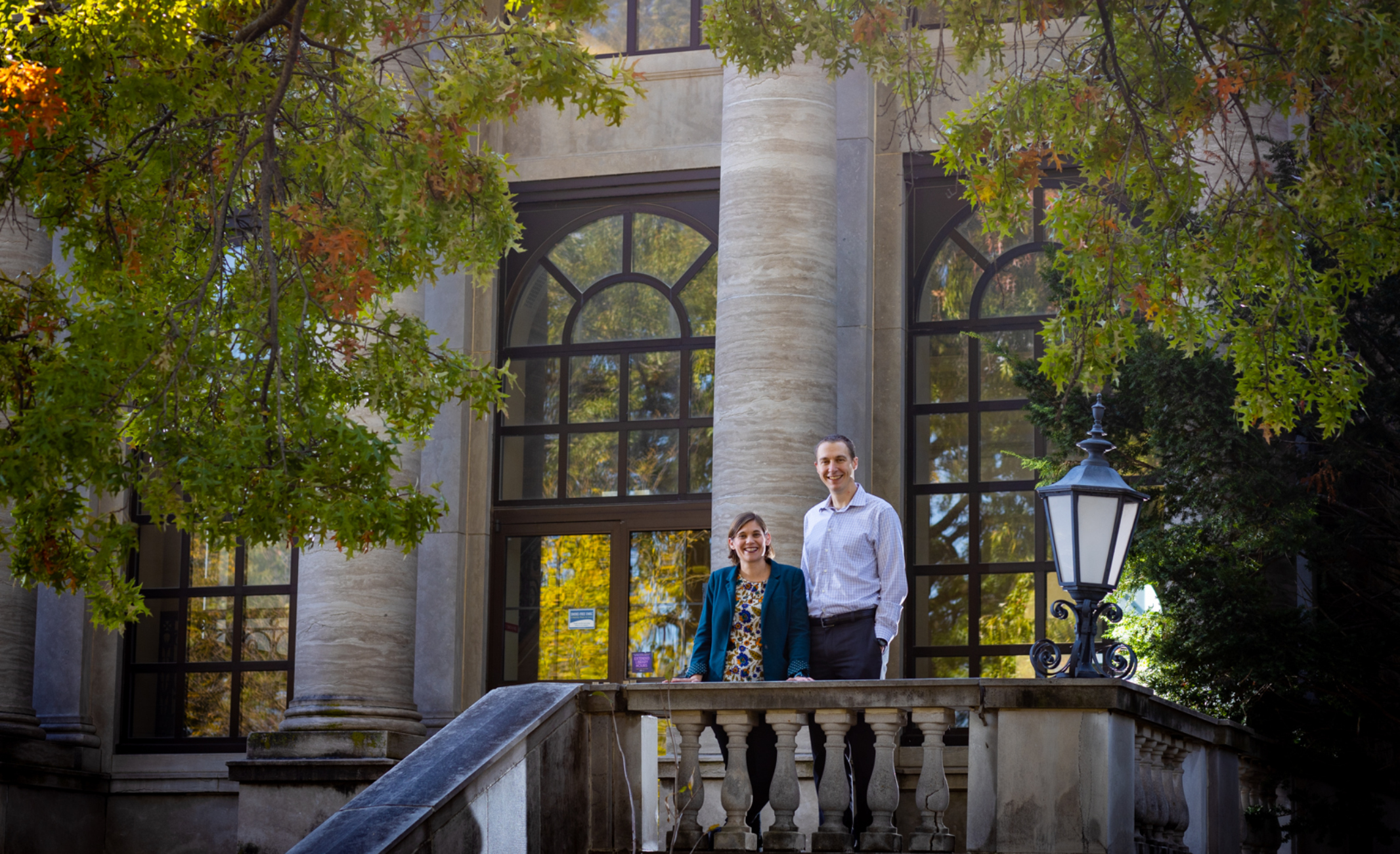Conversations at the Vonnahme family dinner table cover a lot of ground. Trucks. Turtles. Psychological dimensions of voter behavior.
Beth and Greg Vonnahme are both political science professors at UMKC, and parents of two preschool children. In a presidential election year generating unprecedented passion and interest, they find themselves juggling teaching, research and administrative duties; family life; and a constant stream of news media requests for analysis and commentary. It’s hectic, but immensely rewarding.
Beth is an associate professor of political science, former department chair and now serves as associate dean of the UMKC College of Arts and Sciences. Greg is an associate professor and current department chair. Between the two of them, they have done eight news media interviews since August on national, state and local election topics.
They met while in the political science doctoral program at Rice University, and “got together over the final season of The West Wing.”
Here are excerpts from a recent conversation.
How did you end up at UMKC?
Greg: Beth came to visit UMKC and loved the city, the department and the college. I was working at Alabama (roll tide!) and eventually got an offer from UMKC.
Beth: He is originally from Iowa and was very grateful to be able to come back to the Midwest.
How old are your children? Are they politically conscious?
Beth: Our kids are 2 and 5. The older one is aware of some basics—the government makes the laws, the existence of a mayor, president, etc. Politics is a big part of our lives and they’ll be exposed to a lot of it eventually, but right now it’s about trains, bugs, bikes, and outer space. (At the dinner table) we’re just as likely to be talking about a huge leaf in the backyard, garbage trucks or a turtle at the pond.
What drew you to political science initially?
Beth: I have always been fascinated with government and politics. I dressed up as the president in second grade for Halloween. My mom helped me sew “Commander in Chief” on a suit jacket. I always assumed I would be a lawyer until I was a senior in college. I took a number of political science and history classes and loved studying politics. I had a professor who suggested graduate school and I was hooked.
Greg: I don’t really remember a time when I wasn’t interested in politics. My parents were highly attentive to politics. Growing up in Iowa also meant that there was a lot of campaign activity around the state and community. There was always this sense that politics mattered and could be used to make our society better. Now, that’s not exactly the same as political science! One of my first political science classes was on international relations, and that introduced me to world politics, which in many ways operates with its own set of complex norms and rules. That had me hooked on political science as an academic discipline.
“Growing up in Iowa also meant that there was a lot of campaign activity around the state and community. There was always this sense that politics mattered and could be used to make our society better.”
Have you had strong mentoring relationships with students who have gone on to enjoy professional success? What does that feel like?
Beth: I have. Most of my students have gone on to successful legal (defense attorneys, environmental lawyers, corporate attorneys, civil litigation, etc.) or governmental careers (World Bank, Defense Department, etc.). I am endlessly proud of our students’ accomplishments. It brings me great pleasure when I see my students getting excellent jobs, having families and doing amazing things for our community.

Greg: I teach a lot of introductory-level classes, so my interactions with students are pretty early, and I also advise them in the major later on. I’ve had students go on to positions on Capitol Hill, the White House, campaigns, in government relations and law. I’m very proud of all of our students, and their effort and resourcefulness. I might have had a small part to play along the way, but I mostly try not to hold them back too much!
“I have always been fascinated with government and politics. I dressed up as the president in second grade for Halloween. My mom helped me sew 'Commander in Chief ' on a suit jacket.”
Have students changed much over the years you’ve been teaching, in terms of their approach to the subject? In terms of their professional goals?
Greg: What I’ve seen in the classroom in the last few years is that the decades-old story about young people not caring about politics might be changing. It is more than just “slacktivism” where people share memes on social media and then don’t actually do anything. I’ve seen a significant increase in the interest that our students have in politics, institutions and voting. They want to understand the issues and processes as a way to be involved in politics more effectively … There is also a degree of skepticism about technology. When social media first began to emerge as a tool for political organization, there was a bit of a utopian sentiment about its possibilities. There’s much more concern about its negative effects among today’s students.
Beth: Students today face many more obstacles than students did when I first started at UMKC in 2006. Food and housing insecurity is a very real issue; financial and family obligations are more acute today than in the past. The specific issues that motivate them have changed, but the passion of political science students to care about the political world and how it affects the daily lives of all has not changed.
What are your other major mutual interests besides politics?
Beth: Family outings, books and sports. Family outings we generally all do together. Books and cycling are both mutual interests, but books are a little bit more my passion, sports are a bit more Greg’s.
Greg: Beth also likes to bake and I like to eat what she bakes.

